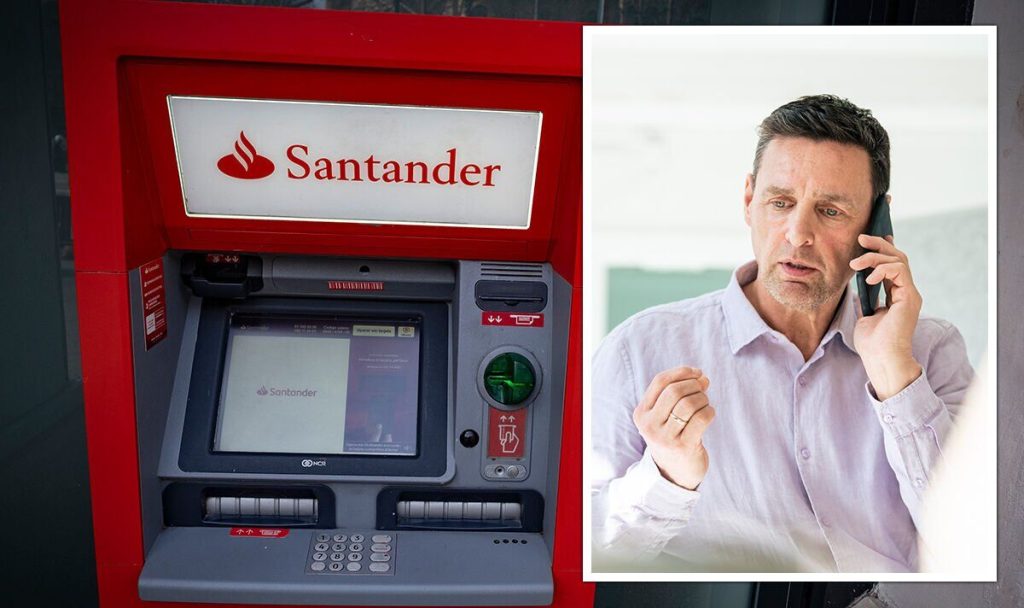
Santander has raised the alarm on money muling – someone who transfers stolen money on behalf of others, usually through their bank account. Britons could become inadvertently wrapped up in this scam through seemingly attractive job adverts or get rich quick offers.
However, these are often not what they seem, and could seriously impact those who become embroiled in the matter.
Santander has shared the story of a man going only by the name of Mr L who received a message on social media out of the blue one day.
The message was from someone he did not know, offering him the chance to earn money working from home using cryptocurrency.
Mr L confirmed his interest, and was asked to share his banking details with the individual.
READ MORE: WASPI calls on men to support state pension age campaign
After an investigation, it was found three victims had been duped in to transferring ‘deposits’ for items they believed they were purchasing on online marketplaces.
The ‘deposits’ went into Mr L’s account, however, no items were ever received by the customers.
By allowing fraudsters to deposit money into his account, even unwittingly, Mr L was found to have played an active role in money laundering.
Money muling, as a result, can have serious consequences for anyone who becomes involved – even if they do not know it is a crime.
The bank said people should always assess job adverts, or out of the blue offers offering money quickly and easily.
Ascertaining where these offers come from, Santander added, can help individuals “gauge whether you are looking at a job related to a possible money laundering offence”.
If someone has been approached in this kind of scam, they should break off all contact, and never receive or move any money.
Similarly, Britons should never provide their bank account details to another person.
The National Crime Agency urges people who think they know someone who is recruiting mules to report them – calling local police on 101 or 999 in an emergency.
If it is online content, Britons are encouraged to report this to social media companies to get the accounts taken down.
If someone is a victim, they should report the matter to Action Fraud, or Police Scotland if they are in Scotland.

 Latest Breaking News Online News Portal
Latest Breaking News Online News Portal




